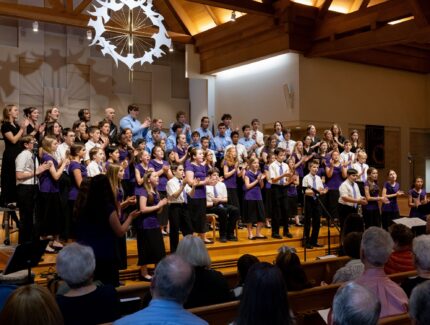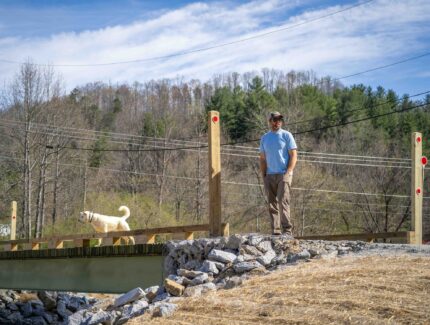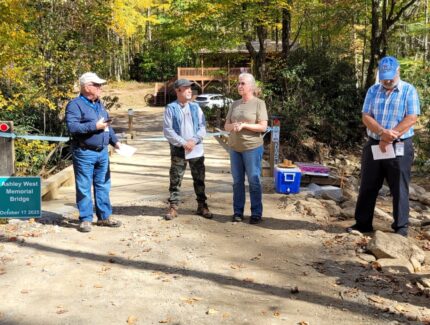
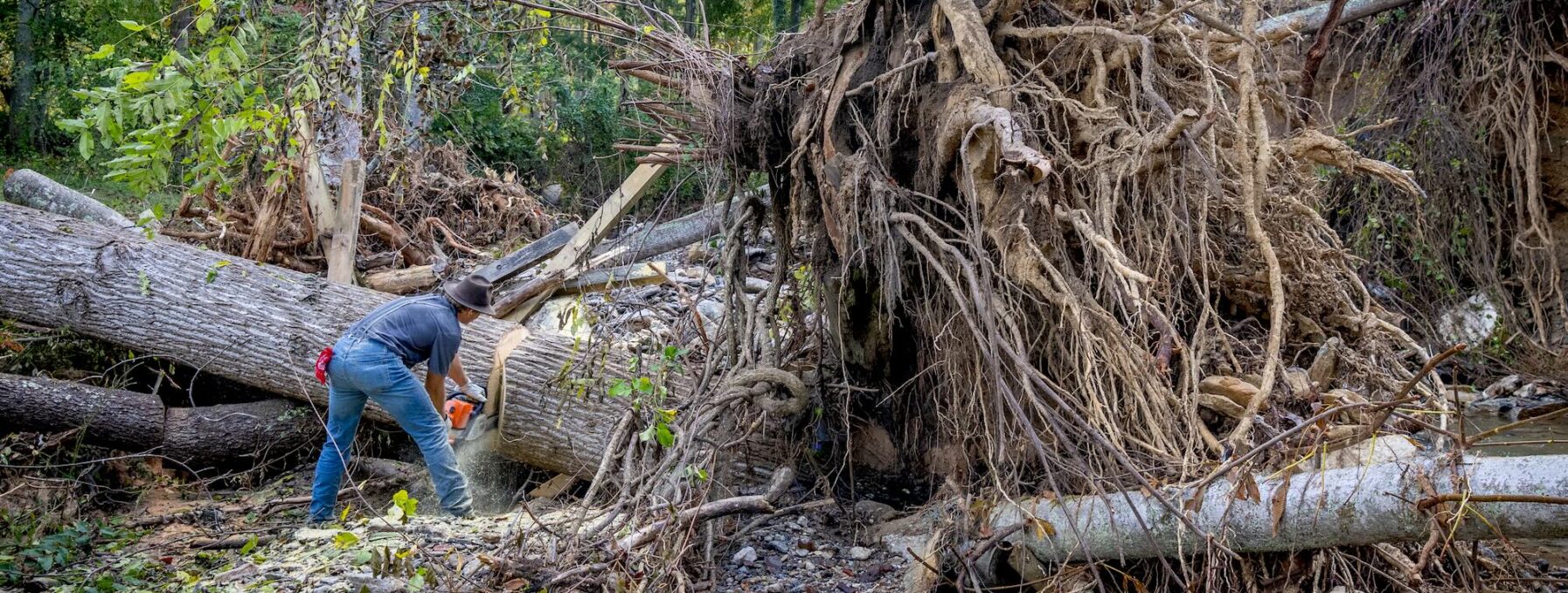
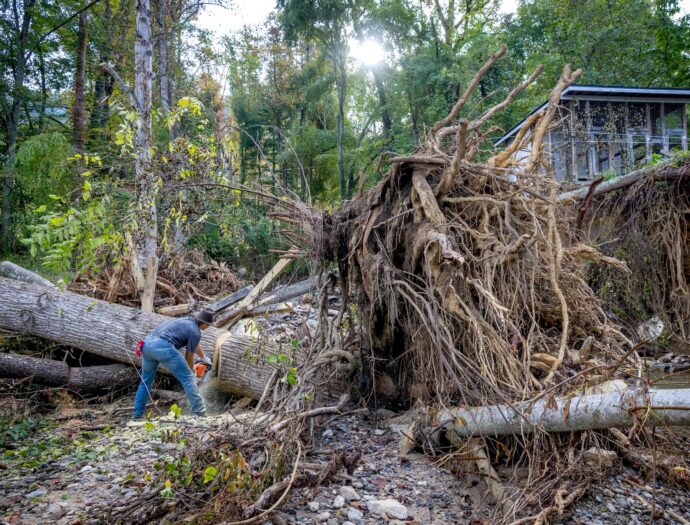
December 10, 2024
Grateful in western NC: early response now looks long-term
Hundreds of MDS volunteers have made a big difference in western North Carolina. As the early response phase drew to a close during the first week in December, long-term recovery from Hurricane Helene was just beginning.
MDS volunteer Steve Haskin spent a month in the region, first assessing damages then identifying how MDS could best help homeowners.
“My duty changed after the first week to being the Project Director for the weekly crews volunteering while continuing to research potential work,” he explained. “The primary need was to remove any obstacles that hampered the homeowners from approaching their property, and also clearing areas around the home.”
In one instance, MDS volunteers smoothed out one-tenth of a mile of a road that was impassable for emergency services and trash service to reach eight homes. “In some instances we removed trees and debris from destroyed homes to enable the owner to start the rebuild process,” said Haskin. “The biggest need was making their property safe.”
Another way MDS volunteers helped was listening and empathizing with Hurricane Helene survivors. “I saw a lot of post-traumatic stress from the ordeal many of them went through,” said Haskin.
He particularly remembers one homeowner, Samantha, a school teacher who had trees down in her back yard with dangerous broken limbs. “Our crew was able to clear all the debris and provide a safe environment for her,” said Haskin. “She was so grateful.”
Haskin also wants to thank all the volunteers. “They worked hard in all kinds of conditions and weather,” he said. “We were blessed with a tremendous set of skill levels that allowed us to accomplish a wide variety of work requirements.”
Whether volunteering to clear debris, repair homes, or build temporary crossings, Haskin encouraged others to serve. “My retirement years have been dedicated to serve those in need,” he said. “MDS provides a means to serve and a family atmosphere that allows us to not only work as a team but also to deeply embed within the local community.”
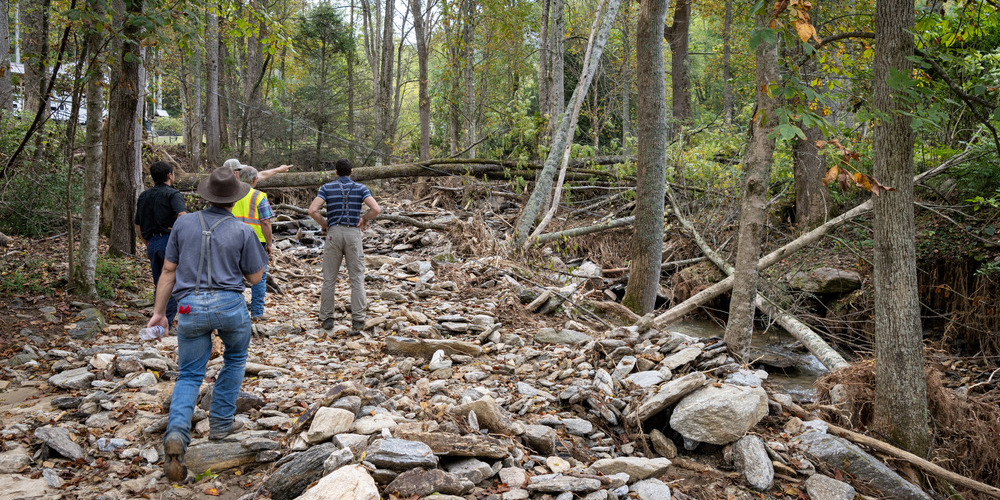
Mennonite Disaster Service deployed Early Response Teams (ERT), many of which were from Lancaster County, days after in the areas of Fairview and Gerton. In the first week over 30 volunteers were hosted & directed by Fairview resident Phil Troyer, a long time MDS volunteer.
Looking long-term
In a new partnership, “Bridging Together,” with Lutheran Disaster Response, MDS volunteers will build bridges that cross small creeks between the state-maintained road and people’s homes in western North Carolina. The Federal Emergency Management Agency has estimated that 4,000 bridges in the area need to be rebuilt.
MDS will kick off the partnership in early January by holding a bridge-building training session in Hendersonville, North Carolina, not only MDS volunteers but for other faith-based groups as well as engineering organizations. The training will be held in collaboration with JZ Engineering, a longtime MDS partner that has designed bridges for MDS since the first bridge was built in West Virginia nearly a decade ago.
Phil Helmuth, who is coordinating the bridge-building efforts for MDS, said more than 30 people have already signed up. “We will train others in how they can build disaster-resilient bridges,” he said.
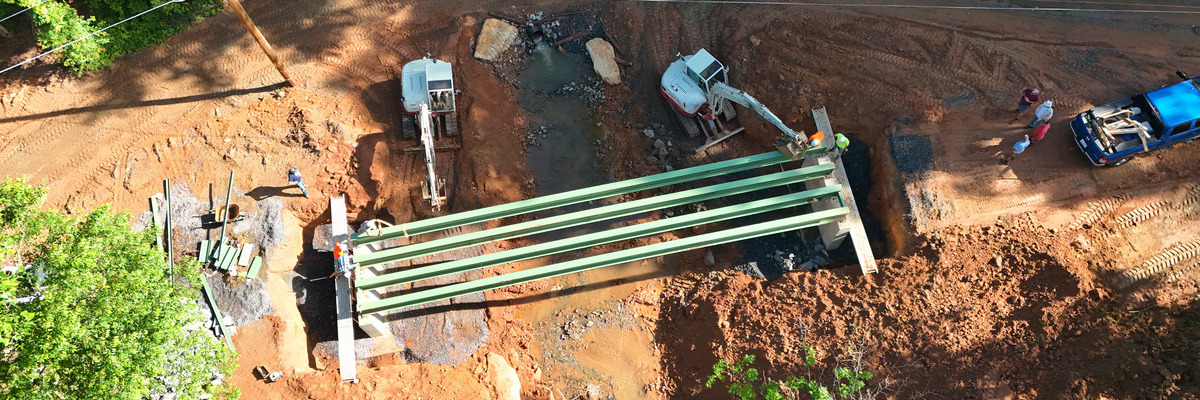
Mennonite Disaster Service (MDS) builds their first bridge in the community of Iron Station, North Carolina.. The bridge will help 29 families cross the local creek that washed out the makeshift crossing in January 5th, 2024
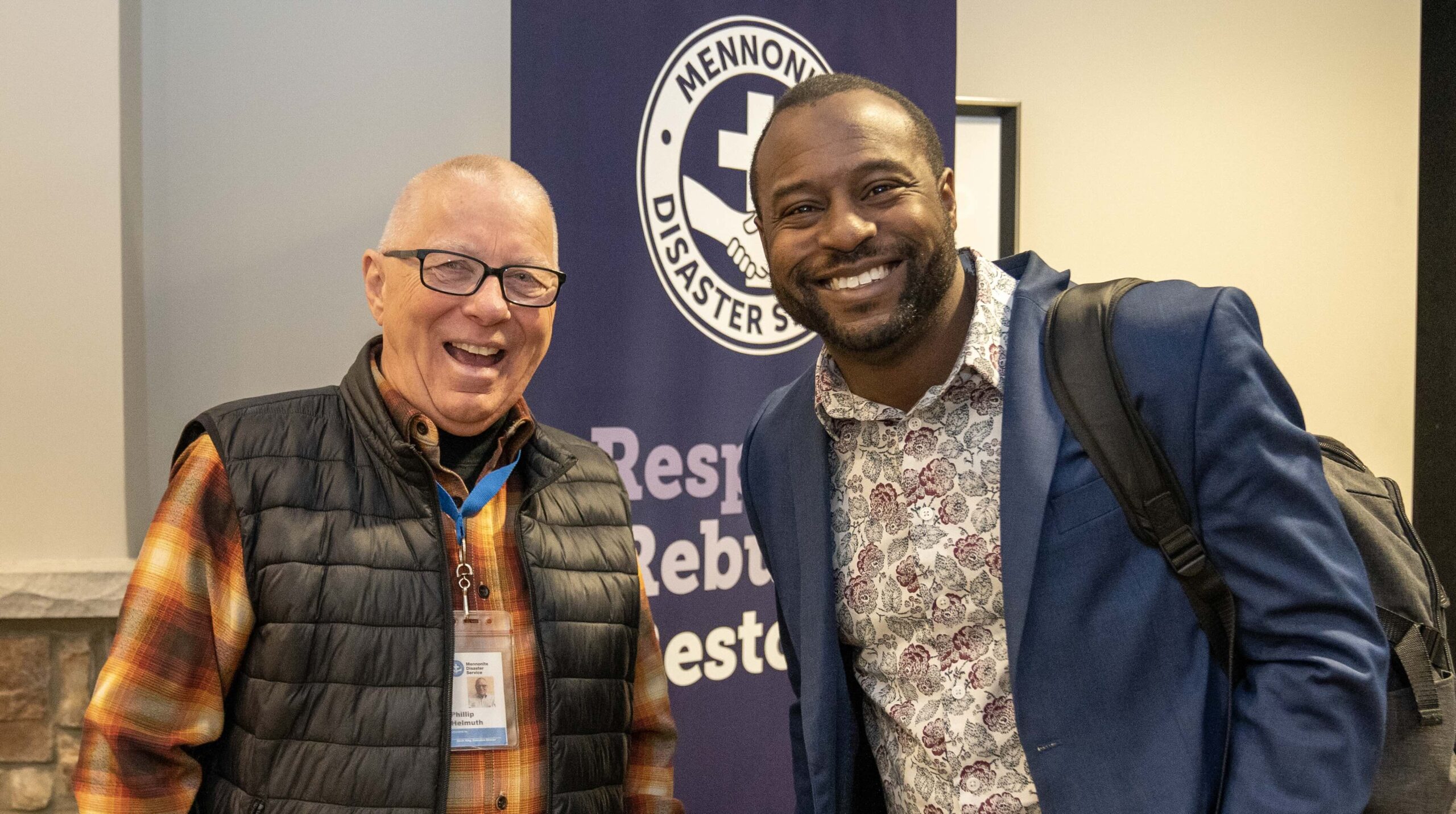
Phil Helmuth (Left) pictured at the 2023 Annual Celebration.
Susan Kim, MDS Writer

